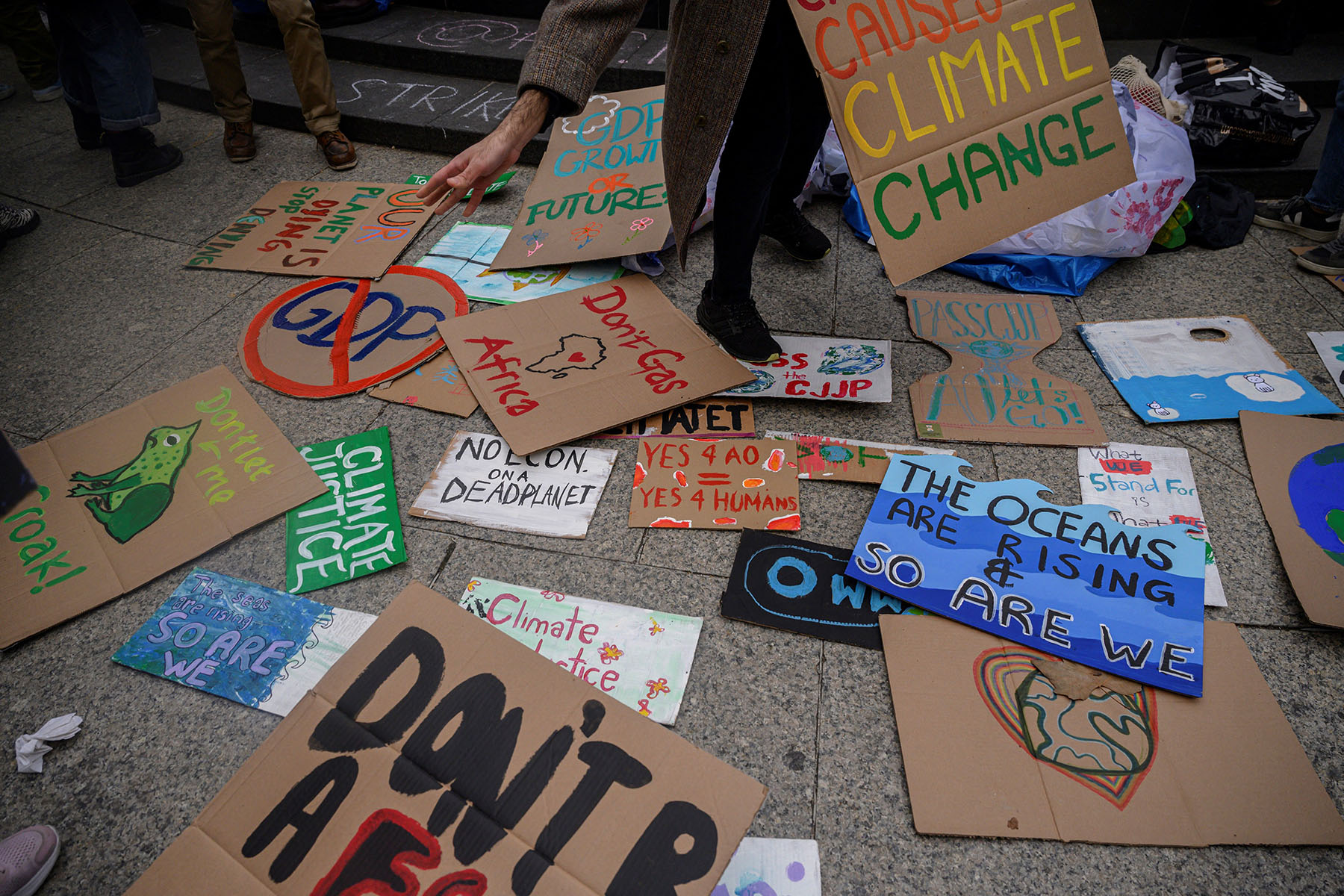Expanding health care access, addressing climate change and protecting reproductive rights all matter more to queer women polled in a recent survey than furthering LGBTQ+ rights. These issues need to be reflected in LGBTQ+ rights organizations, researchers and advocates say.
Queer women face discrimination that is largely unaddressed within and beyond the LGBTQ+ movement, as well as by mainstream institutions that purport to serve them, the survey authors write in a report detailing their findings. The National LGBTQ+ Women’s Community survey aims to be a resource for the community — and for anyone who wants to understand more about how queer women live and what they want.
“I don’t want to be thinking about the right wing every day. I want to be thinking about us,” said Jaime Grant, project director for the survey. “I think there’s so much data here to help us really think about us and to help us build better things in the community together.”
The survey captured the experiences of thousands of queer women, as well as the experiences of anyone in the LGBTQ+ community who has previously identified as a woman and who centers their emotional, sexual or family life around women. It encouraged transgender men, as well as gender-fluid people, to share their views.
Respondents were asked to write in their own answers about their top policy priorities, their various gender identities and favorite things about being queer, and what kind of accessibility barriers they face to reach LGBTQ+ services.
Collecting qualitative data on LGBTQ+ people who see themselves as part of the broader queer women’s space is important to gain a deeper understanding of the community as a whole, said Bianca D.M. Wilson, a senior scholar of public policy at the Williams Institute at the UCLA School of Law. Queer identities often fall outside of neatly defined categories.
The research is not the largest known dataset on queer women, according to Wilson. However, it brings a revelatory depth on the issues impacting queer women and their daily lives in a way that has not been done before. Other datasets on queer women have not asked what policies they care about, she said.
The data is also being captured in a radically inclusive way, she noted.
“We need projects like this, that think about experiences of girlhood, womanhood and perception as female at some point along the life continuum. And acknowledging that is part of the diversity of queer community,” Wilson said. She was on the advisory committee for the survey and provided feedback on the project.
Although the survey was advertised to a broad spectrum of LGBTQ+ people, most respondents were White cisgender lesbians. But, many respondents — 41 percent — described their gender or sexuality as “complex.” Survey participants ranged from 18 to 93 years old and were split evenly across geographic regions. Five thousand people in total finished the unweighted survey, which was open from June 2020 to September 2021.
When the survey asked queer women for their top three policy priorities, respondents were not given a list to choose from; they were asked to write in their own three core issues. Still, clear trends emerged.
More accessible health care was the most commonly prioritized. Forty-five percent said in the survey that more affordable or accessible health care — which they also described as universal health care or Medicare for all — is their top concern. Universal health care means that health insurance coverage is available to everyone and is provided by the government or private companies, or a combination of both. Medicare for all, a separate policy, would expand Medicare to replace other public and private health insurance plans.
Meanwhile, 37 percent of surveyed queer women said combating environmental and climate change is one of their top three priorities. Thirty-six percent listed reproductive justice, abortion access and bodily autonomy as one of the issues that matter most to them. LGBTQ+ advocacy groups need to invest a lot more into these issues, Grant said.
“Stop seeing them as adjacent to us, as a tangential queer issue,” she said. “Some of us see queer liberation as a bigger mission than what is getting defined by these folks.”
Of these top issues, most major LGBTQ+ organizations have leaned into advocacy for reproductive rights, especially after Roe v. Wade was overturned. Multiple groups explicitly say that abortion access is a queer issue and tie attacks on gender-affirming care to attacks on abortion access. The National Center for Lesbian Rights has a resource page for LGBTQ+ families living in a post-Dobbs world. GLAAD, the nation’s largest LGBTQ+ media advocacy group, implores media outlets covering abortion bans to talk to LGBTQ+ advocates and LGBTQ+ people to understand how restrictions impact the queer community.
The Supreme Court case that ended the federal right to an abortion was a wake-up call for people concerned about bodily autonomy and equal rights, including the LGBTQ+ community, said Imani Rupert-Gordon, executive director of the National Center for Lesbian Rights.
“When people talk about what’s affecting LGBTQ women — people ask me that all the time, and it’s the same thing that’s affecting everyone else. We are still experiencing a global health pandemic. It makes sense that health care access would absolutely be something that’s at the forefront,” she said.
To Grant, these priorities make sense for queer women, especially for those who are caretakers for others in their community and families. In the survey, many queer women said they relied on chosen family and friends to get through their darkest times, including surviving abusive partners and interpersonal violence. The importance of those relationships is too often ignored in public policy, Grant said.
Gun control and anti-racism were also more pressing priorities for queer women than LGBTQ+ equality as a whole. Only 21 percent said LGBTQ+ liberation is a top priority, compared with 27 percent who named gun control and 22 percent who said anti-racism is a chief concern.
Since the survey makeup is heavily White and middle to upper class, that impacts what respondents’ top policy priorities are, Wilson said. Only 27 percent of study participants were Black, Indigenous, or people of color. She urges more research on what the top issues are for queer women of color — which could come from further analysis of the data already gathered in this survey.
The survey dug into many aspects of how queer women of color live. Queer BIPOC women reported fluid and changing genders and sexualities more often than White queer women. Queer women of color were also more likely to be out at school, more likely to live with a disability, and more likely to be survivors of physical abuse from a partner than their White peers.
“The absence of a focus on economic and racial justice issues, and policing, is a function of who they were able to get in the study,” Wilson said.
Still, Treva Lindsey, a professor of women’s, gender and sexuality studies at Ohio State University, said the survey’s emphasis on gender variance is an encouraging sign of progress, especially for data collection on Americans’ policy priorities. The survey provides key insight on the experiences of queer women and models how other surveys can do the same — and how they should include more queer women of color.
However, since the survey authors did not perform regression analysis on their findings, that limits what conclusions can be drawn from the results, Lindsey said. The report describes the experiences of its respondents in-depth, which is valuable, but those findings cannot be applied to all queer women, she said.
One of the core ideas of the survey is that the LGBTQ+ movement has lost the thread on how dismantling racism and sexism is core to LGBTQ+ liberation. More data will be released from the survey, which its authors hope to be a continuing project — not a one-time data dump — that attracts outside researchers to dive into topics like racial injustice.
Cathy Renna, spokesperson for the National LGBTQ Task Force, took the survey herself. It took her about an hour to finish. What struck her the most was being able to share moments of queer joy in the survey, and, as she looked at the results, how often queer women are there for each other when there is no supportive family or community to take care of them.
The survey also underlines how far that LGBTQ+ advocacy still has to go, she said. If LGBTQ+ advocates don’t connect the dots between these issues, that will come with huge ramifications, she said.
“The data really demonstrates that we are a complex community and a diverse community. And that if we don’t start to look at the way we do work in the movement in an intersectional way, we’re going to continue to not make progress.”
As that work continues, the spirit of one participant who took the survey — who said that “never giving up the fight” is her favorite part about being a queer woman — is what the survey authors hope will inspire others to keep going.







